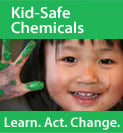
feasting mosquito
Mosquito season is in full swing and, as a non-fan of bad smelling and potentially toxic commercial skeeter-repelling products, I’ve found myself, along with my family, hiding indoors at dusk. Peak feasting hours. We live in a heavily wooded neighborhood with streams and ponds. A mosquito’s dream world.
While it’s important to keep oneself protected against mosquitoes, which can transmit serious disease such as West Nile virus, malaria, and eastern equine encephalitis (EEE), I can’t help but wonder… How safe are these products that we spray on our children from head-to-toe? Are there natural measures one can take to reduce mosquito population, deter them from gnawing on your arm, and possibly even keep their annoying buzz at a distance? And one question that has been nagging at my 8-year old: “Why does the world need mosquitoes?” These are just some of the questions I will address in this series about mosquitoes, which will also include my family’s first-hand experience with natural solutions. Hopefully the information will help you to navigate through the rest of your summer with fewer mosquito bites and less reliance on chemical-ridden repellents.
But first, what in the heck is the purpose of a mosquito? I can tell you this: answering this is not as difficult as the age old “what is the purpose of life” question. According to American Mosquito Control Association (AMCA), “Mosquitoes fill a variety of niches which nature provides.” [not to mention giving AMCA a purpose]. “As such, placing a value on their existence is generally inappropriate. Although the fossil record is incomplete, they have been known from the Cretaceous Period (about 100 million years ago) in North America. Their adaptability has made them extraordinarily successful, with upwards of 2,700 species worldwide. Mosquitoes serve as food sources for a variety of organisms but are not crucial to any predator species.”
In other words, their purpose is to annoy the living daylights out of us. But other animals and bugs like to eat the mosquitoes, so those are what we need to attract to our backyards. But first, I’d like to address the controversial DEET (N,N-Diethyl-meta-toluamide).
DEET in mosquito repellents – is it safe? DEET is a synthetic chemical pesticide that randomizes the flight pattern of approaching mosquitoes by partially de-activating antennae-based heat and C02 receptors. Bottom line, it deters them from even landing on you. Strong liquid DEET generally smells unpleasant, destroys some paints, dissolves the surface of plastic sunglasses and some synthetic fabrics, makes you feel nauseous if you get it on your lips, and is dreadful to put on first thing in the morning (my mom also noted she didn’t like how it took off her nail polish). And who wants a DEET solution on nice clothing?
According to the American Academy of Pediatrics, all family members over the age of two months can use DEET-based repellents, with the following caveats:
- Apply DEET sparingly on exposed skin; do not use under clothing.
- Do not use DEET on the hands of young children; avoid applying to areas around the eyes and mouth.
- Do not use DEET over cuts, wounds or irritated skin. Wash treated skin with soap and water after returning indoors; wash treated clothing.
- Avoid spraying in enclosed areas; do not use DEET near food.
- DEET is not recommended for use on children under 2 months of age.
- 30% is the maximum concentration currently recommended for infants and children.
They also say, “A prudent approach would be to select the lowest concentration effective for the amount of time spent outdoors. It is generally agreed that DEET should not be applied more than once a day.” Hmmm. What is one to do if one is outdoors all day and into the evening?
According to the EPA, at least 18 different cases of children suffering adverse neurological effects, as well as 2 adult deaths have been linked to DEET. Yet, it is approved by the EPA “as long as exposure is brief, and long-term exposure is not expected” … “and consumers follow label directions and take proper precautions”. Could they be a little bit more specific? But there’s more… “Consumers can reduce their own risks when using DEET by reading and following products labels.” Beyond what the AAP had to say, the EPA adds the following:
- Do not allow young children to apply this product.
- Use just enough repellent to cover exposed skin and/or clothing.
- Avoid over-application of this product.
- Use of this product may cause skin reactions in rare cases.
Oh, I almost forgot: according to the EPA, DEET is slightly toxic to birds, fish and aquatic invertebrates.
Call me an over-protective tree-hugger, but I’m not embarrassed to say that caution is the side on which I like to err. Especially when my child’s health could be at risk. “Oh, but we’ve been using this stuff for years,” some might say, as their eye twitches uncontrollably. But consider the following:
- Cynthia Drasler, a chemical-free living expert and international radio show host of Chemical Free Living, says, “DEET is a known, dangerous neurotoxin and should not be used at all, especially on children.” Beyond DEET, according to Cynthia, there are many extremely harmful chemicals in conventional mosquito repellents. I talked to Cynthia today and she pointed out that DEET and other synthetic chemicals are tested singly… as if they’ll never be used in combination with other synthetic chemicals. Most, if not all, of DEET based repellents contain isopropyl alcohol (also known as rubbing alcohol), which makes the repellent even more toxic. Layer on any medicine you’re taking, pollution and all of the chemicals we’re exposed to throughout the day… Our community hires a mosquito control company that sprays about once a week during the summer season and I shared the company’s spraying chemical label with Cynthia. It contains permethrin, which is a pesticide. No surprise. She recommends: if you have a garden and your community sprays for mosquitoes, you better make sure you’re notified before the spraying occurs so that you can cover your plants with something porous, like a light cloth. Not plastic.
- I did a little bit more research on our community’s spray: it also contains piperonyl butoxide, which, when added to pesticide mixtures, increases its potency! The label also says if inhaled, move the person to fresh air and if the person is not breathing, call 911… [what if people have their windows wide open and a fan attic on–like we did before we knew our community was being sprayed?] It is harmful if absorbed through the skin, and is extremely toxic to aquatic organisms including fish and aquatic invertebrates. The runoff from treated areas or deposition of spray droplets into a body of water may be hazardous to fish and aquatic invertebrates. The product is highly toxic to bees exposed to direct treatment on blooming crops or weeds. Do not apply this product or allow it to drift to blooming crops or weeds while bees are actively visiting the treatment areas [does early the next morning count?] except when applications are made to prevent or control a threat to public and/or animal health determined by state, tribal or local health or vector control agency on the basis of documented disease causing agents in vector mosquitoes, in or in occurrence of mosquito-borne disease in animal or human populations, or if specifically approved by the state or tribe during a natural disaster recover effort. Um… hello? Is this also hurting the insects that would otherwise eat mosquitoes? This deserves it’s own blog.
- The Pesticide Action Network (PAN) does not recommend the use of DEET. Period. And notes that scientists have raised concerns about DEET’s toxic properties when used alone and in combination with other chemicals.
- A study conducted in the late 1980s on Everglades National Park employees to determine the effects of DEET found that a full one-quarter of the subjects studied experienced negative health effects that they blamed on exposure to the chemical. Effects included rashes, skin irritation, numb or burning lips, nausea, headaches, dizziness and difficulty concentrating.
- In 2004, Duke University pharmacologist Mohamed Abou-Donia recommended caution when using DEET. His animal studies found the chemical causes diffuse brain cell death and behavioral changes, and concluded that humans should stay away from products containing it. “With heavy exposure to DEET and other insecticides, humans may experience memory loss, headache, weakness, fatigue, muscle and joint pain, tremors and shortness of breath,” said Abou-Donia. “Such overt symptoms are not seen immediately after use but may manifest themselves months or years after exposure, making a cause-and-effect relationship difficult to establish.” He also said, “Never combine insecticides with each other or use them with other medications. Even so simple a drug as an antihistamine could interact with DEET to cause toxic side effects. Don’t spray your yard for bugs and then take medications.”
- According to the Agency for Toxic Substances & Disease Registry (ATSDR) depending on the exposure dose (generally very high) and species of laboratory animal tested, DEET has been shown to cause neurological and behavioral effects, including ataxia, locomotor impairment, restlessness, seizures, encephalopathy, respiratory distress, neurotoxicity, and even death.
Can Mosquitoes be Repelled Safely? Yes. Keep in mind that what works for you won’t necessarily work for other family members.
Vanessa Vadim, environmental advice columnist for Mother Nature Network, offers this do-it-yourself option: Dilute essential plant oils with water, vegetable oil (preferably soybean) or alcohol. Apparently, witch hazel and apple cider vinegar can also be used as a base. “I often just mix the essential oils with an unscented skin cream.” She recommends essential oils such as eucalyptus, cedar, geranium, peppermint, lemon grass, fennel, catnip and rosemary plants in addition to tea tree, castor and soybean oil and says, “Lemon eucalyptus and soybean are often considered the most effective of the bunch, and peppermint oil is reported to also kill mosquito larvae.” She also noted that at least one study found catnip to be 10 times more effective at repelling mosquitoes than DEET.
If you feel you don’t have time, there are already-made mosquito products that contain essential oils. But it is important to note that no matter what you’re buying, just because the word “natural” appears on a label does not make it 100% so.
DEET-free Repellents. I conducted my own uber-mini case study last July 4th–the official kick-off of human hunting season for mosquitoes. Test subjects included my husband, our son (8 at the time), and a handful of neighbors/friends. It has been a very interesting experience (click here for results). One brand works wonders for my husband, but did not deter the mosquitoes from making at least 25 meals out of Ethan and I on a long walk we took yesterday. Beyond repellents, what more can we do? Rely on mosquito predators? Plants? Of course, there’s good old fashioned prevention measures, which you’ve probably heard a million times before, but a little reinforcement never hurts. For fun, you might want to check out funky mosquito facts that might prove helpful topics if you find yourself in an awkward social situation.
Filed under: environment, insects + animals | Tagged: chemicals, children, DEET, environment, family, friends, health + safety, insects, kids, mosquitoes, nature, news, safety, science |












[…] DEET is dangerous. But how do we get mosquitoes to bugger off without this proven repellent? My family, neighbors and friends tested a number of repellents over the last few weeks… I’ll get to the ones that worked in a minute. […]
[…] for a mosquito in mid bite upon my skin or a centipede scurrying across the floor in our house, you won’t […]